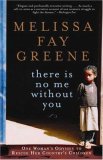Summary | Excerpt | Reading Guide | Reviews | Beyond the Book | Readalikes | Genres & Themes | Author Bio
One Woman's Odyssey to Rescue Her Country's Children

Critics' Opinion:
Readers' Opinion:
First Published:
Sep 2006, 352 pages
Paperback:
Sep 2007, 496 pages
 Book Reviewed by:
Book Reviewed by:
BookBrowse Review Team
Buy This Book
A landlocked country (since 1993, when, by popular referendum, Eritrea became
Africa’s fifty-third sovereign state and Ethiopia became Africa’s fifteenth
landlocked state), Ethiopia’s huge population, droughts and food crises,
nonindustrial means of production, huge debt-service obligations, massive
military spending, ongoing border disputes with Eritrea, and state ownership of
land all foil and baffle development experts and keep the people rural,
unemployed, and destitute.
The Ethiopian populace has struggled again and again to install democratic
leaders who will promote industrialization, education, and civil equality; but
the citizenry has been repeatedly disappointed.
In 1995, Ethiopia’s first multiparty elections made Meles Zenawi prime minister
and awarded his Ethiopian People’s Revolutionary Democratic Front (EPRDF) a
legislative majority. But the government—the first in Ethiopia’s history with
democratic pretensions—has been unable to steer a path toward industrialization,
economic growth, and human rights. Recurrent cycles of drought, food shortages,
and famine inspire critics of the government to call, in vain, for land reform
and for agricultural modernization as stepping-stones to development.
“In a country where good governance does not exist and where the government is
the land- and business-owner and the people are tenants, it is difficult to
imagine that the private sector would prosper,” said Lidetu Ayalew, secretary
general of the opposition Ethiopian Democratic Party (EDP), last year.
“After fourteen years or so of leadership by the EPRDF, up to twenty percent of
the country’s sixty-five million people are not able to eat even once a day,”
said Berhane Mewa, president of the Ethiopian and Addis Ababa Chamber of
Commerce.
Instead the administration has veered toward ethnic politics (the singling out
for promotion of the Tigrayan people—the prime minister’s ethnic group—as if
others were rivals), saber rattling toward Eritrea, and the silencing of
journalists and opposition voices. “Land will remain state-owned as long as the
EPRDF is at the helm of the country’s leadership,” Meles has said. Border
disputes with Eritrea spur massive military spending: the escalation into war in
1998 cost the government $2 million a day; in 2000, the defense budget exceeded
$800 million.
Health and education budgets decline correspondingly whenever there is a
military buildup. Funding for social and health sectors has expanded since 2000,
but remains far below what is desperately required. Even across sub-Saharan
Africa, health spending is about ten dollars per person per year, while, in
Ethiopia, government spending on health, per person per year in 2002, was two
dollars.
Thus victims of polio and malaria and HIV/AIDS and cancer, and the blind and
the lepers, and the mentally ill and the malnourished, and the orphans and the
dying, roam the streets of the capital city, or lie on its sidewalks, defeated.
Twice in the twentieth century, Ethiopia overthrew its authoritarian rulers:
Emperor Haile Selassie was toppled by a Communist coup led by Colonel Mengistu
Haile Mariam in 1974; and then Mengistu was overthrown by Meles Zenawi and the
EPRDF in 1991. Both revolutions came with horrendous bloodshed.
To watch Meles’s government turn dictatorial and martial is a source of
momentous disappointment and discontent.
Neither the child nor the father was at home, we discovered. We also
discovered that “home” was a pile of dirty rags and plastic bags on the
sidewalk, a few feet from a bus stop. Scraps of corrugated tin and wood had been
tied together to make a low fence around the filthy bedding. “He was born here,
his mother gave birth to him right here,” said Gerrida.
Excerpted from There Is No Me Without You, (c) 2006 Melissa Fay Greene. Reproduced with permission of the publisher, Bloomsbury USA/Walker & Co. All rights reserved.





The Funeral Cryer by Wenyan Lu
Debut novelist Wenyan Lu brings us this witty yet profound story about one woman's midlife reawakening in contemporary rural China.
Your guide toexceptional books
BookBrowse seeks out and recommends the best in contemporary fiction and nonfiction—books that not only engage and entertain but also deepen our understanding of ourselves and the world around us.